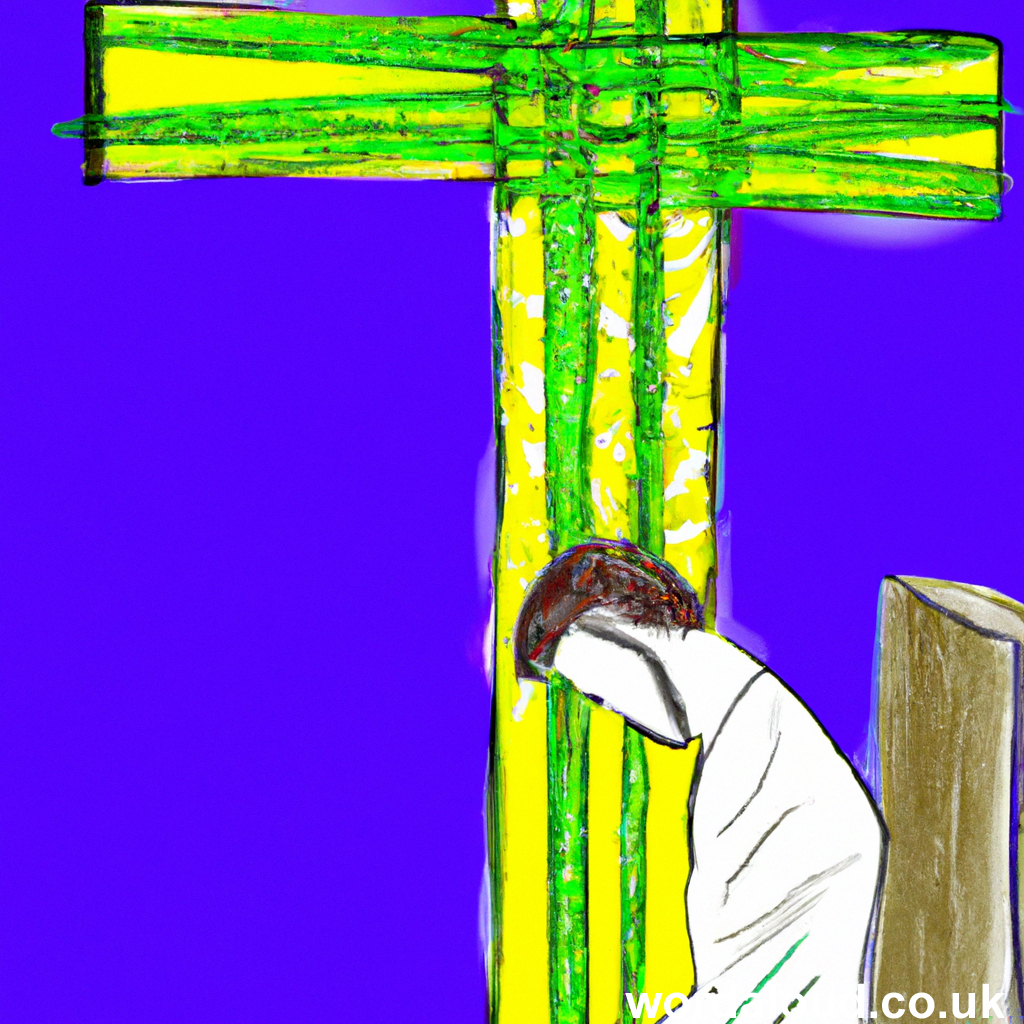Christian Art | Boy At Prayer With Jesus | Revelation And Faith
Office Of Readings | Eastertide Week 2, Tuesday | A Reading From The Books Of Saint Fulgentius Of Ruspe Addressed To Monimus | Jesus Christ Our Sacrament Of Unity And Love
‘Sacrament of unity and love.’
Commentary on The Sacrament of Unity and Love by Saint Fulgentius of Ruspe
In this rich Eastertide reflection, Saint Fulgentius presents the Eucharist as both the source and summit of Christian unity, drawing the Church together into one spiritual body through the bond of love. His meditation resonates profoundly with the paschal season, in which the Church celebrates the risen life of Christ not merely as a past event, but as a present, living reality—embodied in the Eucharist and shared through the Spirit.
At the heart of Fulgentius’ vision lies the theological conviction that the Church, the Body of Christ, is built up in love. Love is not simply a moral virtue among others; it is the very life of God communicated to his people through the Holy Spirit. This is why, echoing Saint Peter’s exhortation, Fulgentius calls Christians ‘living stones’, formed into a spiritual temple through their participation in the priesthood of Christ. The offering that binds this spiritual house together is the Eucharist: the sacramental presentation of Christ’s own Body and Blood under the signs of bread and wine.
This is no mere symbol. Fulgentius draws heavily on Pauline theology: ‘The cup we drink is a participation in the blood of Christ, and the bread we break is a participation in the body of Christ.’ These familiar words from 1 Corinthians 10 are more than liturgical formulae—they express the astonishing reality that the Eucharist does not only point to Christ; it makes him present. And in receiving Christ, the many become one. ‘Because there is one loaf,’ Paul says, ‘we who are many are one body, for we all partake of the one loaf.’ Fulgentius returns to this truth again and again: in partaking of the one bread, we are made one Church.
What makes this unity possible, according to Fulgentius, is the Holy Spirit—the love of God poured into our hearts. Here he draws on the deep well of Trinitarian theology. The one Spirit, who is the bond of love between Father and Son, produces among the faithful the same communion he shares in the Godhead. Thus, the Church is not merely a human organization striving for unity through consensus or structure; it is a communion born of God’s own life. As the Acts of the Apostles describes of the early Christian community: ‘They were of one heart and one soul.’ Fulgentius sees this as no mere historical detail, but a theological sign of what the Church is called to be in every age.
This insistence on unity leads naturally to a call for moral and spiritual integrity. Fulgentius, like Paul in his Letter to the Ephesians, urges the Church to ‘preserve the unity of the Spirit in the bond of peace’. That unity must be guarded through humility, patience, forgiveness, and above all, love. In this, the Eucharist becomes both the source and the school of Christian life. If we receive the Body of Christ, we must become the Body of Christ. If we share in the sacrifice of Christ, we must offer our own lives as ‘a living sacrifice, holy and pleasing to God’. Thus, the liturgy leads us back into life, where what we have celebrated must be enacted.
The pastoral implications of this teaching are vast. In an age where the Church often struggles with division—doctrinal, cultural, political—the Eucharist stands as both judgment and hope. It calls us out of isolation and individualism, and draws us into the deep communion that God himself desires for his people. It teaches us that unity is not something we construct by will or strategy, but something we receive through grace and must nurture through love.
This theology is not only ancient—it is strikingly contemporary. Pope Francis, in his repeated calls for synodality, fraternity, and Eucharistic consistency, draws from the same well as Fulgentius. The Eucharist, Pope Francis reminds us, is not a prize for the perfect but the bread of sinners called into communion. But it is also not a private devotion detached from ecclesial life. It calls us to conversion, to reconciliation, and to mutual responsibility within the body of believers.
In the end, Fulgentius offers a vision of the Church as nothing less than a living organism, shaped by the Eucharist, sustained by the Spirit, and conformed to the love of the Triune God. It is a vision both ancient and ever new, a call to unity that is not superficial but sacramental—rooted in the deepest mystery of our faith: that God is love, and those who abide in love abide in God, and God in them.

A Reading From The Books Of Saint Fulgentius Of Ruspe Addressed To Monimus
The spiritual building up of the body of Christ is achieved through love. As Saint Peter says: Like living stones you are built into a spiritual house, to be a holy priesthood, offering spiritual sacrifices acceptable to God through Jesus Christ. And there can be no more effective way to pray for this spiritual growth than for the Church, itself Christ’s body, to make the offering of his body and blood in the sacramental form of bread and wine. For the cup we drink is a participation in the blood of Christ, and the bread we break is a participation in the body of Christ. Because there is one loaf, we who are many are one body, since we all share the same bread. And so we pray that, by the same grace which made the Church Christ’s body, all its members may remain firm in the unity of that body through the enduring bond of love.
We are right to pray that this may be brought about in us through the gift of the one Spirit of the Father and the Son. The holy Trinity, the one true God, is of its nature unity, equality and love, and by one divine activity sanctifies its adopted sons. That is why Scripture says that God’s love has been poured into our hearts by the Holy Spirit he has given us. The Holy Spirit, who is the one Spirit of the Father and the Son, produces in those to whom he gives the grace of divine adoption the same effect as he produced among those whom the Acts of the Apostles describes as having received the Holy Spirit. We are told that the company of those who believed were of one heart and soul, because the one Spirit of the Father and the Son, who with the Father and the Son is one God, had created a single heart and soul in all those who believed.
This is why Saint Paul in his exhortation to the Ephesians says that this spiritual unity in the bond of peace must be carefully preserved. I, therefore, a prisoner for the Lord, he writes, beg you to lead a life worthy of your calling, with all humility and meekness and with patience, bearing with one another in love, eager to maintain the unity of the Spirit in the bond of peace. There is one body and one Spirit.
God makes the Church itself a sacrifice pleasing in his sight by preserving within it the love which his Holy Spirit has poured out. Thus the grace of that spiritual love is always available to us, enabling us continually to offer ourselves to God as a living sacrifice, holy and pleasing to him forever.








